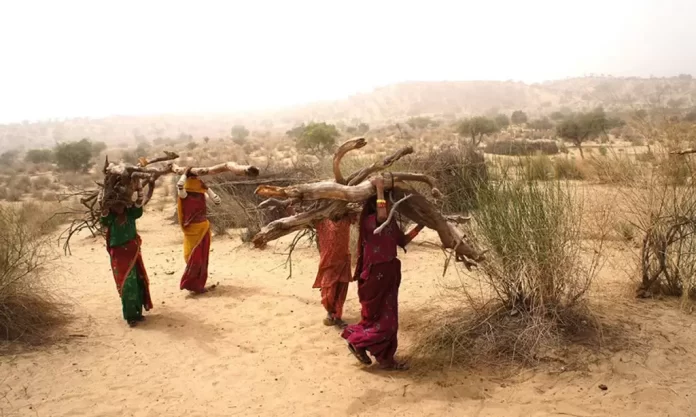Climate change is one of the most unequivocal and vexing realities the human race is facing. An impediment to many watersheds, it also adds to gender inequality. Women make up to 70% of the world’s poor and the pandemic has deteriorated the quality of life for them, making way for the further gender gap. Until now, climate change has merely been seen as a threat to the planet’s existence as a whole. However, some intricacies are more severe but overlooked by climate experts, world leaders, and governments. And gender gap caused by climate change is one such example.
Vulnerable communities get affected most due to the fluctuating climate. And in that too, precisely young girls and women are the ones facing more difficulties as they have scantier resources and agency during calamities caused by climate. Among them, women and young girls are the worst affected by these changes, with the fewest resources or agency during climate stress, and the heaviest burdens to bear. This not only accounts for tense living conditions for rural women but also glaring evidence of how climate change is a bigger problem for the poor than it is for the privileged class.

As per UNDP, for women, especially the ones living in rural areas, the distances to search and carry water and fuelwood become longer and more precarious. Moreover, women around the globe give up their share of food to family members in a poor harvest; they do not have access to basic health facilities when travel routes are flooded with water or clogged with snow. Women have to bear more infant deaths caused due to lack of sanitation and hygiene in case of preventable diseases.
In Pakistan, 9.1 million women agricultural workers play a significant role in food production, but they are mostly unpaid, and hence far more vulnerable to exploitation than men, which diminishes their ability to deal with risks posed due to climate change. Out of 181 countries, Pakistan ranks 152nd in the Notre-Dame-Gain Index, which calculates a country’s vulnerability to climate change and other global challenges, as well as its readiness to improve combat mechanisms. For Pakistan, gender equality is already in the backlog to deal with, but climate change is going to make it tougher to combat the problem.
Here is why:
39% of Pakistan’s multidimensional poverty, and up to 40 percent of households 10 face food insecurity. 90 % of the agriculture sector is dependent on the glacier-fed Indus River system, and agriculture employs 42 percent of the labor force. Most of the urban residents do not have access to clean drinking water. Pakistani cities rank the highest on the air pollution score
1 in 10 deaths among children under the age of 5 is caused by air pollution, and about 128,000 persons die from 12 airborne particulate matter in Pakistan. Empirically, more hazards are directed towards the water and food security.
Climate change is largely affecting the agricultural sector where a majority of rural women have to work to earn a livelihood. In the coming years, with increasing temperatures and fair possibilities of droughts, these women workers will not only face loss of livelihood but also food shortages leading to health issues and diseases, speaking of poverty and its perils.
Despite the global efforts to mitigate climate change from a local to an international scale, the role of climate change in exacerbating the gender gap cannot be overcome or diminished unless the governments, on the whole, formulate climate policies keeping gender mainstreaming in mind. In Pakistan’s case, the readiness of provinces, especially the rural areas, is vital. The agricultural regions must be provided with facilities and mechanisms to tackle extreme weather conditions and catastrophes so women do not have to suffer health and food constraints. Secondly, climate change efforts must not be limited to urban areas. The rural population should be sensitized on the issue and given proper awareness on how to deal with the existing and prospective hazards.
Climate change may infer a premature fatality of this planet if the detrimental practices are not relinquished completely. The greater responsibility, however, lies on the shoulders of the legislators, climate experts, and the ones with the agency. They have to realize that while the progress is being towards policy formulation and implementation, gender mainstreaming is not disregarded, as doing so would not only lead to further inequality but also catalyze the percentage of poverty.
Elsa Imdad is a USG Alumna. She holds a bachelors in modern languages with an English major and Spanish minor. She has previously been part of American Spaces in Pakistan and now works as a Project Coordinator at the Center for Research and Security Studies. Her interests include public diplomacy, language teaching, peace and conflict resolution, capacity building of marginalized groups, etc.




